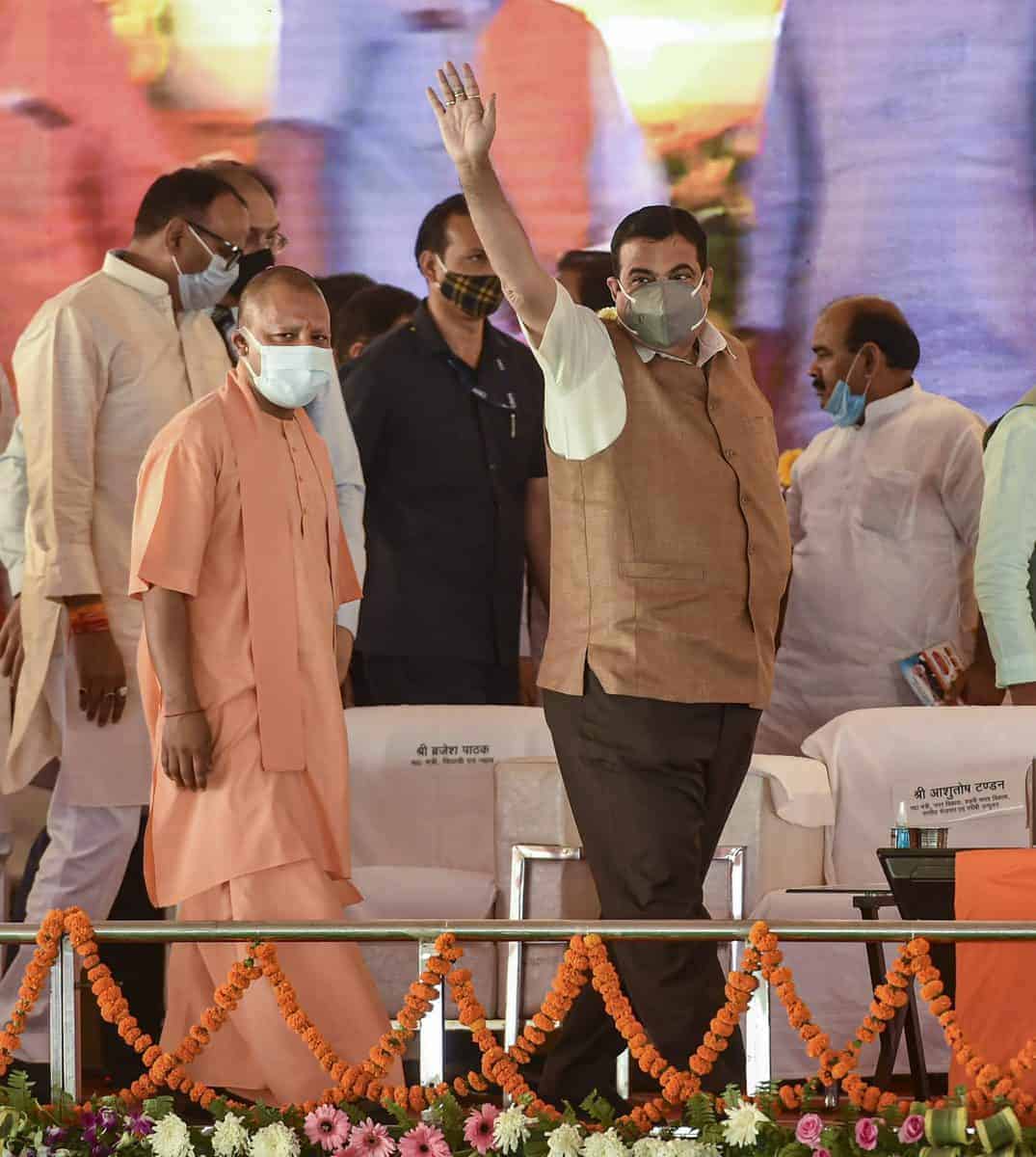
By Palwai Raghavendra Reddy
India’s largest state Uttar Pradesh goes to ballot in the first quarter of next year, and these polls can be dubbed as the semifinals before the next general elections in 2024. Winning UP remains the cornerstone of Indian politics, and political outfits do anything and everything possible to win there, regardless of whether what they do is good or bad, moral or immoral.
And it is the average voter who must ensure they do not fall into the pit of communal politics and right candidates are elected.
Lynching in the name of religion and communal hatred rampantly spread around the country tested that sense of responsibility among the voters of Uttar Pradesh, who gave unprecedented majority of 325 seats in a 400 seats State Assembly to the Bharatiya Janata Party-led National Democratic Allaince. While BJP did not announce a before for the top post, the party brought in saffron-clad, loud-mouthed Yogi Adityanath as the CM, post elections.
Yogi Adityanath, before being anointed chief minister, and even after remains BJP’s star campaigner in elections. His speeches often stir-up religious hatred among people even in regions which did not have a history of communal tensions. While his presence and speeches are given great importance in other states, now Yogi Adityanath will be fighting the biggest election of his life to ensure BJP wins majority in Uttar Pradesh, and he retains his Chief Minister’s post subsequently.
It is matter of weeks before India will witness what direction, Yogi Adityanath and BJP would take to win in Uttar Pradesh. The voter of Uttar Pradesh is sure to witness a high-decibel poll campaign and will be hard pressed to re-elect “Yogi Brand” of politics or reject it. But it is not just Yogi Adityanath, the people of UP will also have another leader seeking their mandate in the name of religion
Though he would not be fighting the elections directly, his speeches, his attire, and his mere presence, will raise eyebrows among the voters. Though Asaduddin Owaisi’s All India Majlis-e-Ittehadul Muslimeen (AIMIM) does not have presence in the state Assembly, stakes are high for him and his party there.
AIMIM contested in 38 seats in 2017 and got just 0.2% or 205,232 votes in total. With Yogi Adityanath becoming Chief Minister, Narendra Modi getting re-elected as Prime Minister in 2019, and the Supreme Court verdict on Ram Janmabhoomi (which many Muslims consider was an error of judgement), it has created a fertile turf for Asaduddin Owaisi to play a possible communal card.
Interestingly, Owaisi was among those who said “Supreme Court is not infallible” immediately after the verdict on Ram Mandir.
In the last week of June month, Owaisi announced his party would contest in 100 seats in the 2022 UP State Assembly Elections, and to gain Secular credentials for his claim, he announced formation of ‘Bhagidari Samkalp Morcha’, a formation in which his party would forge alliances with Suheldev Bharatiya Samaj Party a self-proclaimed representative outfit of Rajbhar community in the State.
Owaisi is also aiming at smaller caste-centric political groups to strengthen his presence in UP. His claim grabbed great attention nationally, and now drew sharp response from Yogi Adityanath, who said the voters of BJP accept the challenge of this Member of Parliament from Hyderabad, and the party would win more than 300 seats in Assembly Elections.
Though these elections are months away, such claims and counter-claims are raising the political temperature in the state, which is considered sensitive on religious and caste lines. Both these sections started work on setting agenda for the elections; and Yogi’s reaction to an otherwise insignificant political formation indicates at a possible polarization in the months ahead.
While Yogi’s BJP and Owaisi’s AIMIM have a certain political design in Uttar Pradesh, other parties which do not appeal to voters in the name of religion will find in difficult to gain fare share of voice in media and draw attention of the average voter. Akhilesh Yadav’s Samajwadi Party, Mayawati’s Bahujan Samaj Party, the Congress party, and any other political outfit with recognizable secular credentials might find themselves lost in setting agenda for the elections or spreading a narrative wide and deep.
A section in Uttar Pradesh started giving great prominence to Owaisi who is embarking on a second attempt to secure political group. Winning 5 Assembly seats in the neighboring State of Bihar in 2020 is making many pundits consider AIMIM a serious prospect in UP, even at the risk of raising religious tempers. Owaisi has a hysterical following among the Muslim youth, and slightest of friction in the run-up to the elections could prove costly to protect the secular fabric of India.
Let us hope the average Uttar Pradesh voter rises over and above communal hatred and rejects any leader who seeks mandate wearing religious colors! Whether it is a Yogi Adityanath or a Asaduddin Owaisi.
(The Author is a political communications specialist; and has worked in Indian states of Telangana, Andhra Pradesh, Odisha, Chhattisgarh and others)

